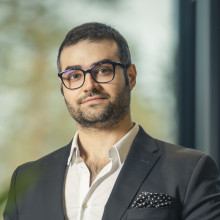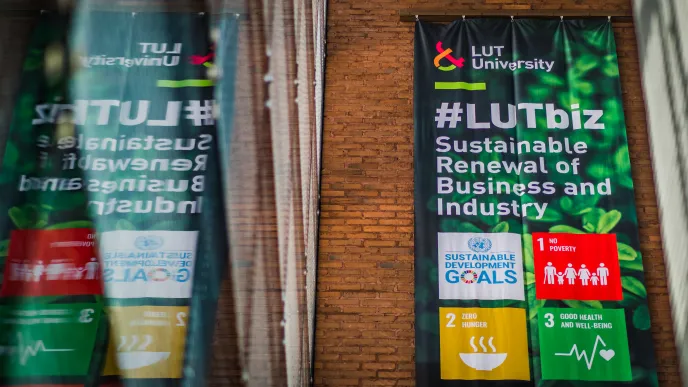International businesses striving for sustainability are constantly juggling evolving regulatory requirements, growing consumer awareness, and technological advancements. As sustainability becomes more deeply rooted in the global market environment, companies must increasingly integrate these aspects into their strategies and operations.
LUT Business School’s new English-language Bachelor’s Programme in Sustainable International Business (SIB), prepares students for the changes they will encounter in the business world. The first group of students started the programme in August.
"By working closely with industry experts from large international companies as well as small enterprises, the programme provides students a first-hand look into the latest practices and challenges faced by multinational companies," says Sina Mortazavi, head of the programme and post-doctoral researcher at LUT Business School.
"Students will gain both theoretical knowledge and practical insights. The curriculum, which includes expert lectures from representatives of companies of various sizes, provides students with knowledge of sustainability issues and innovative solutions for real-world situations."
Additionally, the SIB programme emphasizes the development of skills such as strategic decision-making, ethical leadership, and adaptability. Graduates will not only become aware of current sustainability trends but also be capable of leading change toward a more sustainable global business environment.
Mortazavi, who is passionate about teaching, is dedicated to providing students with valuable content that prepares them for the highly competitive job market.
"Students will be developing a strong understanding of sustainable business practices throughout their studies. That will supply them with the best possible tools to succeed in their careers and make a positive impact in the world."


Three key challenges companies face
1 Importance of social sustainability: Many companies perceive sustainability exclusively as an environmental issue, which is undoubtedly an important dimension, but social sustainability also matters. This broader approach includes improving well-being and empowerment in communities, both domestically and abroad. Key elements include job creation, workplace equality, safety, and educational opportunities, often addressed through corporate social responsibility (CSR) strategies applicable to both large and small companies.
2 Speed of updates in sustainability policies and standards: This poses a significant challenge. Industry must adapt quickly, which requires experts who can seamlessly integrate changing regulations into business operations.
3 Gap between decision-makers and industry representatives: This concerns understanding and communicating new sustainability standards. Policymakers may struggle to communicate the implications of new regulations if they do not understand the industry context. Similarly, industry experts may find it difficult to comprehend what is expected of them regarding compliance.
SIB attracts a significant number of applicants
Mortazavi strongly recommends the SIB programme to anyone seeking a career in business or sustainability-related roles in international organizations, in both the public and private sectors.
"The SIB programme equips students to conduct ethical business and make decisions that contribute to a better future for us and future generations."
According to Mortazavi, the SIB programme has already sparked considerable interest, attracting a significant number of applicants. He believes this enthusiasm reflects students’ growing desire to deeply understand sustainable international business.
In its first year, the SIB programme received 649 primary applicants, ranking among the top in Finland alongside the eEconomics programme at Aalto University. Of LUT’s primary applicants, 576 were international, making the SIB programme Finland’s leader in the number of international applicants among universities offering English-language bachelor’s degrees in business administration.
The acceptance rate compared to the number of applicants was the most competitive among equivalent programmes nationally.
"LUT Business School’s researchers ensure the high level of the curriculum. Many of them are involved in the SIB programme's teaching. In the latest Times Higher Education (THE) subject ranking, the quality of our research was rated the second best globally."
"I’m optimistic about the programme's expansion potential and future. SIB is poised to become one of Finland’s leading bachelor's programmes in business administration."
More information:





